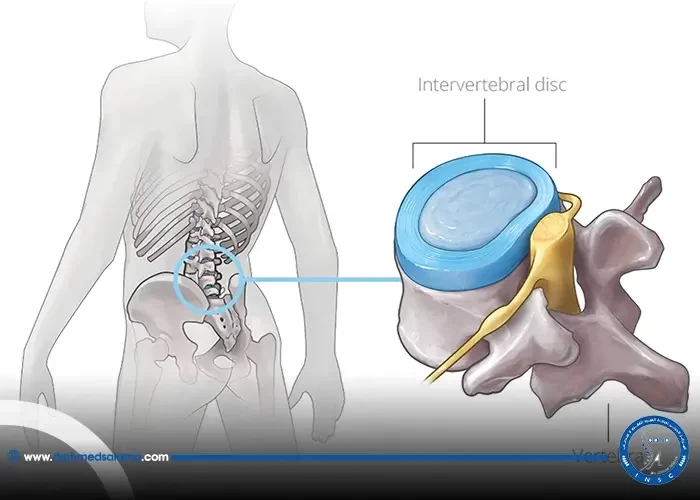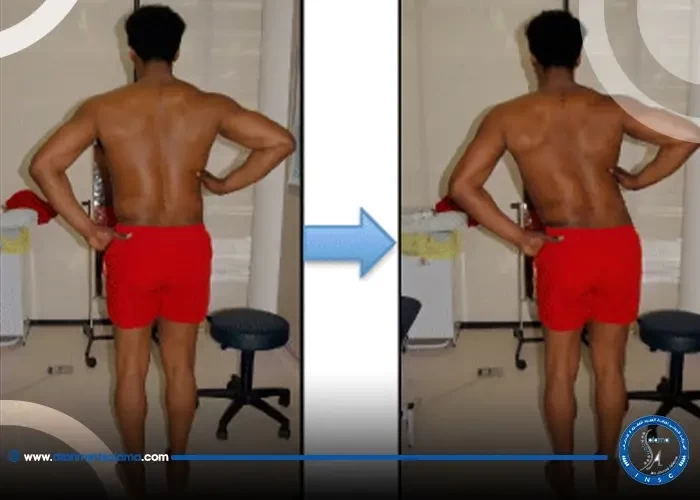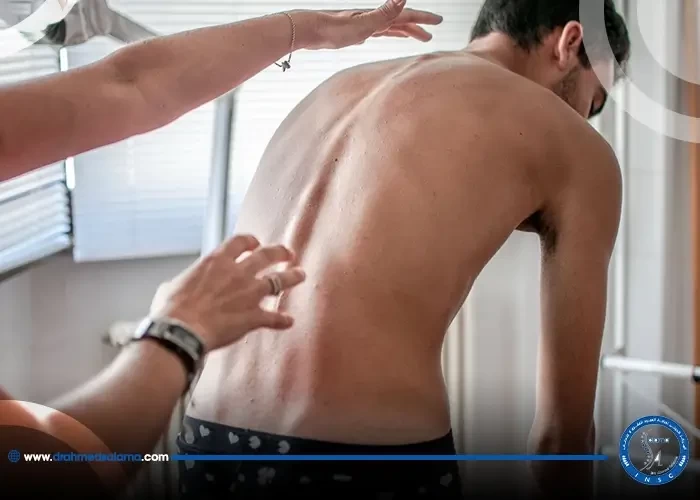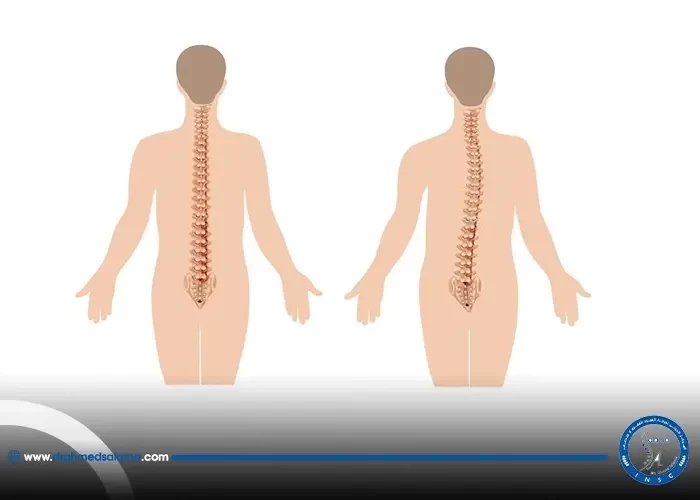Nasr City, 52 El Tayaran Street, in front of the Health Insurance Hospital

Symptoms of a brain hemorrhage

Imagine your body telling you something serious like the symptoms of a brain hemorrhage, even though you may not be aware of it. A brain hemorrhage is an emergency that may start with mild symptoms but can be very dangerous if not treated quickly. These symptoms range from a sudden headache to loss of consciousness or weakness in the limbs, and a person may experience any of these symptoms suddenly. In this article, we'll explore the most prominent signs of a brain hemorrhage you should be aware of, as well as what to do if someone around you experiences these symptoms. With accurate knowledge, you can save lives or reduce the damage caused by this serious condition.
Symptoms of a brain hemorrhage: How do they differ from person to person?
The symptoms of a brain hemorrhage vary from person to person depending on the location and size of the hemorrhage, but there are some common symptoms you should be aware of. The patient may experience a sudden, severe headache, which some describe as "the worst headache of their life." The headache may be accompanied by loss of consciousness or severe dizziness. Other symptoms to monitor include difficulty breathing or an inability to breathe normally. If the bleeding affects a person's ability to move parts of their body, they may experience weakness or paralysis on one side of their body. Vision changes, such as blurred or double vision, may also occur. Additionally, a person with a brain hemorrhage may feel hypersensitive to light or sounds. If any of these symptoms occur, it is essential to consult a doctor immediately for appropriate diagnosis and treatment.
Symptoms of a Brain Hemorrhage
Symptoms of a brain hemorrhage may begin suddenly and vary in severity depending on the location and size of the hemorrhage. The most prominent symptoms that may indicate a brain hemorrhage are an unusually severe headache, along with weakness or numbness in the extremities. In other cases, the patient may experience loss of balance or difficulty speaking. Since intracerebral hemorrhage is life-threatening, it is essential to recognize the symptoms of an internal brain hemorrhage and seek immediate medical attention. Symptoms of a brain hemorrhage include:
A sudden, severe headache unlike any previous headache.
Sudden weakness or numbness in the face, arm, or leg, especially on one side of the body.
Difficulty speaking or understanding speech. Severe blurred vision or sudden loss of vision.
Loss of balance or motor coordination.
First-time seizures or convulsions.
Sudden loss of consciousness or brief coma.
Difficulty swallowing or breathing.
If you notice any of the symptoms of an internal brain hemorrhage, don't hesitate to visit Dr. Ahmed Salama, the best neurologist in Egypt. With his extensive experience and meticulous diagnosis and treatment, you will be guaranteed exceptional healthcare that will help you recover as quickly as possible and with the highest safety standards.
The difference between a brain hemorrhage and a stroke
Neurological symptoms of a brain hemorrhage
One of the most important symptoms that may indicate a brain hemorrhage is sudden changes in consciousness or thinking. The patient may experience difficulty concentrating or sudden mental confusion, making it impossible to perform simple daily tasks. Sometimes, the patient may experience changes in movement, such as difficulty walking or coordination, or even paralysis on one side of the body. Other symptoms may also occur, such as difficulty breathing or an abnormal heart rate, requiring immediate medical intervention.
Serious Symptoms of a Brain Hemorrhage
Symptoms that develop rapidly and suddenly are more serious in cases of brain hemorrhage. These important symptoms include sudden loss of consciousness or fainting, as well as possible convulsions or seizures. Bleeding can also cause blurred vision or loss of vision in one or both eyes, indicating that the bleeding has affected the optic nerves. If you notice any of these symptoms, you should seek immediate medical attention, as early intervention increases the chances of recovery and reduces the risk of long-term complications.
Symptoms of Brain Hemorrhage in Children
Symptoms of a brain hemorrhage and how long it takes for symptoms of a brain hemorrhage to appear
Symptoms of a brain hemorrhage include a group of signs that appear suddenly or gradually, such as a severe and sudden headache, dizziness, weakness in the limbs, loss of balance, and difficulty speaking or seeing. The duration of symptoms of a brain hemorrhage varies depending on the size and location of the hemorrhage. Symptoms may appear within a few minutes in severe cases, or develop slowly in less severe cases. It is important to recognize these symptoms early and seek immediate medical attention to receive appropriate treatment and minimize serious complications.
What are the causes of a brain hemorrhage?
Symptoms of a brain hemorrhage in children
Symptoms of a brain hemorrhage in children may be more difficult to diagnose because children cannot always express their feelings of pain or distress. However, some signs may be observed that indicate internal bleeding in the brain. It is essential to pay attention to these symptoms and seek immediate medical attention to ensure the child's health and safety. Symptoms of a brain hemorrhage in children include:
Intense and persistent crying for no apparent reason.
Loss of consciousness or abnormally deep sleep.
Neck stiffness or muscle spasms.
Noticeable weakness or lethargy.
Frequent vomiting for no apparent reason.
Change in the shape or swelling of the head (especially in infants).
Difficulty breastfeeding or eating.
Abnormal eye movement.
To ensure excellent healthcare for your child if any of the symptoms of a brain hemorrhage appear, it is recommended to contact Dr. Ahmed Salama, the best neurologist in Egypt. With his extensive experience in handling emergency cases, Dr. Ahmed provides comprehensive medical care and close follow-up to ensure effective treatment and a speedy recovery. Feel free to contact us for a consultation or to book an appointment. Learn more about non-surgical brain tumor treatment.
When do symptoms of internal brain hemorrhage appear?
Symptoms of internal brain hemorrhage usually appear suddenly after an injury or rupture of a blood vessel within the brain. Symptoms of a brain hemorrhage may develop quickly or over hours to days, depending on the size and location of the hemorrhage. In some cases, symptoms may be immediately apparent, while in other cases they may begin gradually. Treatment for a brain hemorrhage may involve several steps. Therefore, it is important to pay attention to any sudden change in a person's condition and seek immediate medical attention. Factors that determine the time of onset of brain hemorrhage symptoms include:
The size and location of the hemorrhage in the brain.
The severity of the initial injury or trauma.
The presence of chronic conditions such as high blood pressure.
The patient's age and general health.
If there are any suspicions about symptoms of internal bleeding, it is best to immediately contact Dr. Ahmed Salama to avoid complications and save the patient as quickly as possible.
Complications of Neglecting Brain Hemorrhage Symptoms
Neglecting to address the various symptoms of a brain hemorrhage can lead to serious consequences that may threaten the patient's life. Complications begin to appear gradually as the health condition worsens, causing a loss of the ability to perform even the simplest daily activities and even leading to permanent disability. Here are the most prominent complications of neglecting the symptoms of internal brain hemorrhage:
Permanent damage to brain tissue and loss of some neurological functions.
Increased intracranial pressure, leading to suffocation of brain tissue.
Permanent weakness or paralysis in the extremities.
Loss of the ability to speak or understand speech.
Persistent epileptic seizures.
Stroke or coma.
Loss of the ability to perform normal mental tasks, such as concentration or memory.
Therefore, don't hesitate to save your life or the life of a loved one by quickly booking an appointment with Dr. Ahmed Salama, the best neurologist in Egypt. He has extensive experience in handling the most delicate cases of brain hemorrhage and treating them using the latest advanced medical technologies to ensure the best recovery results.
How long does it take to recover from a brain hemorrhage?
The recovery period for a brain hemorrhage varies greatly depending on the size of the hemorrhage, its location, and the extent of its impact on the brain, as well as the speed of treatment after the onset of symptoms. In some cases, a person may begin to improve after a few weeks of treatment, while in other cases, it may take several months or even years for full recovery. Intensive treatment and rehabilitation play a significant role in accelerating the recovery process. The recovery period typically includes the following:
Early recovery: Symptoms of a brain hemorrhage may begin to improve after the first weeks of treatment, but some symptoms may persist for a long time.
Rehabilitation and exercises: Physical and occupational therapy can continue for several months until the ability to move and speak is restored.
Full recovery: In some cases, full recovery may take between 6 months to a year, depending on the individual case.
Is it possible to recover from a brain hemorrhage?
The answer to the question: Is it possible to recover from a brain hemorrhage? Yes, it is possible to recover from a brain hemorrhage if medical intervention is provided early and appropriate care is provided. Speed of diagnosis and treatment are crucial factors in determining the degree of recovery. In cases of small hemorrhages, complete recovery may be achieved with medical or surgical treatment, while in cases of larger hemorrhages, the patient may require a long period of physical therapy and rehabilitation to restore neurological function. In all cases, continuous follow-up is important to achieve the best results.
If you are looking for the best healthcare and the latest methods in treating brain hemorrhages, Dr. Ahmed Salama, the best neurologist in Egypt, is the ideal choice. With his extensive experience in this field, he provides you with meticulous care and advanced treatment to ensure a full recovery as quickly as possible.
Best Neurologist in Egypt
If you are looking for the best neurologist in Egypt, Dr. Ahmed Salama is your first choice. He has extensive medical experience and high-level academic credentials, and is distinguished by:
Extensive experience in neurology.
Using the latest medical technologies in diagnosis and treatment.
High recovery rates among his patients at the center.
High-level humane treatment of patients and their families.
Strict follow-up of each case after treatment to ensure full recovery. Highly skilled in performing delicate and complex surgeries.
Ability to diagnose the most delicate and rare neurological conditions.
Comprehensive and comprehensive assessment of your health condition to ensure the best treatment plan.
Therefore, do not hesitate to book your appointment with Dr. Ahmed Salama to receive the best specialized medical care and personalized attention that will ensure your safe and efficient recovery with the best doctor for treating brain tumors.
Finally, everyone should be aware of the symptoms of a brain hemorrhage and the importance of dealing with the condition promptly. Early detection and rapid intervention can significantly contribute to saving the patient and reducing potential complications.
For more reassurance and specialized treatment, you can seek the help of Dr. Ahmed Salama, the best neurologist in Egypt. With his extensive experience in diagnosing and treating brain hemorrhages, he provides you with distinguished healthcare to ensure the best results and the fastest recovery
How do I know if I have a brain hemorrhage?
If you experience symptoms such as a sudden, severe headache, nausea or vomiting, loss of consciousness, difficulty speaking or moving, or blurred vision, you may be experiencing a brain hemorrhage. If you notice any of these symptoms, you should see a doctor immediately for evaluation and appropriate treatment.
How many hours do symptoms of a brain hemorrhage appear?
Symptoms of a brain hemorrhage usually appear suddenly and may begin within minutes to hours of the bleeding. The speed at which symptoms appear depends on the type and size of the hemorrhage. In cases of severe bleeding, symptoms may worsen rapidly, so you should seek emergency care immediately if any of these symptoms appear.
Does the patient survive a brain hemorrhage?
A patient's survival from a brain hemorrhage depends on several factors, such as the size of the hemorrhage, its location, and the speed of medical intervention. If diagnosed and treated promptly, the patient can recover well. However, delaying treatment may increase the risk of complications.
What are the symptoms of internal bleeding in the head?
Sudden, severe headache Numbness or weakness in the face, arm, or leg, usually on only one side of the body Difficulty speaking or understanding other people's words (dysphasia or aphasia) Vomiting and nausea Impaired awareness and sphincter control Convulsions or seizures Hemiplegia Allergic disturbances






